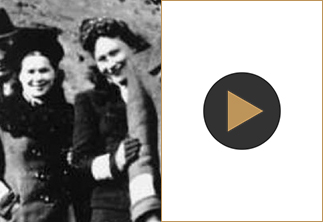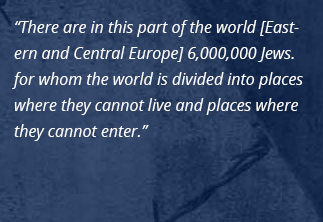Long Term Impact of the March of the Living on Participants
The following are excerpts from an article titled:
“Long Term Impact of the March of the Living on Participants” By William B. Helmreich, Ph.D. Professor of Sociology
CUNY Graduate Center & City College of New York ,December 7, 2015
In 2015, a study was conducted to determine the long-term impact of the March of the Living program on its Jewish participants. A total of 250 past participants were selected at random and interviewed at length. They included those who had gone very recently, in the Spring of 2015; those who had taken the trip five years ago, in 2010, and those who went a decade ago, in 2005. The questions covered a broad range of issues related to attitudes and behaviors about Jewish identity, views about Israel and the Holocaust, ritual observance, charitable giving, and lifestyle questions, as well as career choices.
Most participants went on the March of the Living because it was a chance to better understand their own Jewish culture. Friends and parents also played a role in the decision to go. The majority did not belong to any Jewish organizations before they went. About 20% became more active in their synagogues following the March, with 76%, giving credit to the March for the increase. Thirty eight percent joined Jewish organizations after the March and 28% gave credit to the March for that decision. Two of the most remarkable findings of this study are that, first, close to half of those responding have visited Israel again since going on the March. This is a very high rate when you consider that 80% of those either just went on the March this year or five years ago. Second, an astonishing 94% of those who had gone in 2005 have visited Israel since then.
The overwhelming majority of unmarried March participants, 86%, assert that it’s very important that their spouse be Jewish. And if the person they fell in love with happened to not be Jewish, then 65% would insist that they convert. As respondents get older higher numbers feel that way. Of those who went in 2005, ten years ago, 87% would insist on conversion. With respect to education, 91% intend to give their children a Jewish education. And just under half were directly influenced by the March in their thinking. By a 65% to 35% margin, respondents also feel that it’s important to live in a Jewish neighborhood.
One of the most important findings for the Jewish community was support for Jewish causes. Almost 90% of respondents said that the March had made it more likely that they would financially support Jewish causes. Action speaks louder than words, of course and here the news is also encouraging. Despite their youthfulness, over 60% have given in the past to Jewish causes.
Of those interviewed, 54% said that the March had made them more tolerant towards other groups as well. But an even higher proportion of those who went on the March ten years ago, 66%, reported that the March had made them more tolerant. Twenty two percent stated that they were involved in social causes such as helping the homeless, the poor, minorities, women’s rights etc.
A full 90% felt that the March had made them more aware of the need to become involved when confronted with anti-Semitism. This was true over the long run as well. About 94% of those who went ten years ago continued to feel that the March had deeply influenced their attitudes about anti-Semitism. Those currently studying at universities were evenly split on whether anti-Semitism is a problem on campus.
Given the overwhelmingly positive results, it’s fair to say that the March has been and continues to be an enormously successful program in terms of ensuring and enhancing Jewish identity and in making people realize how important it is to be an engaged Jew who cares about his or her community and about human beings in general. And in many cases the March has changed the lives of its participants. And that is no small feat.
When you have 86% saying it’s very important that their spouse be Jewish; 91% intending to give their children a Jewish education; 90% saying that the March had made it more likely that they would support Jewish causes, and 95% stating that the March strengthened their Jewish identity—- that’s truly amazing. It’s fair to say that the March has been and continues to be an enormously successful program in terms of ensuring and enhancing Jewish identity, creating very strong support for Israel, and making people comprehend how important it is to be an engaged Jew who cares about his or her community and about human beings in general. In short, the March has played a major role changing the lives of its participants in all the ways that matter. And that is a tremendous accomplishment.





